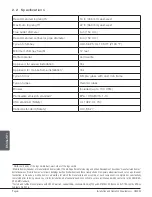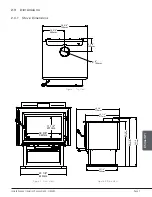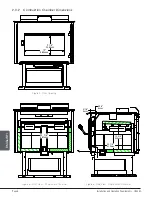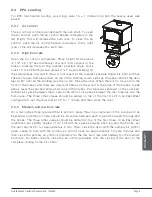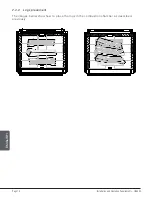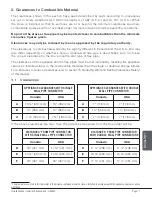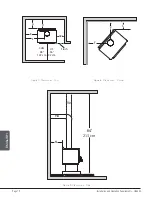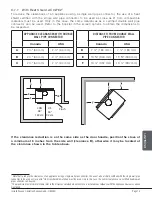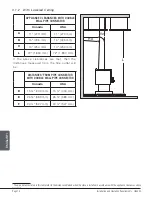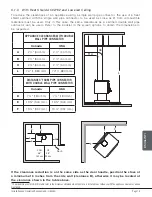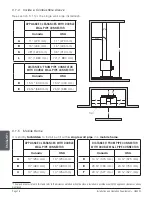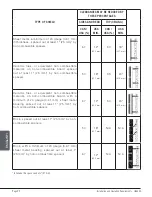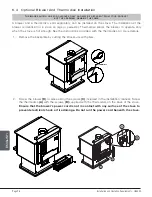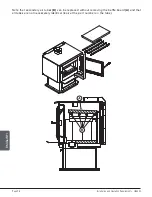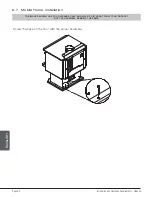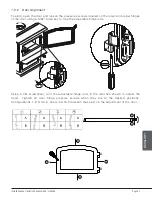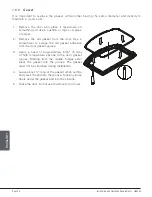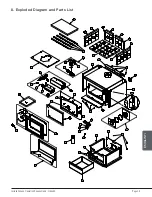
Page 20
Installation and Operation Requirements - HES350
ENGLISH
5. Reducing Wall and Ceiling Clearances Safely
It is often desired to use as little space as possible when installing
a wood stove. To do this, it is possible to reduce the clearances
safely and install the stove closer to the walls by permanently
installing a heat shield between the stove and the flammable
material.
The rules for heat shields are sometimes complicated. Read
and apply the instructions carefully. Some regions may have
different regulations. Consult the local building code or contact
the fire department for restrictions, inspection and installation
requirements in the area.
Warning: To reduce the clearances of an appliance using a single wall pipe connector, the use of a heat
shield certified with the single wall pipe connector to be used as close as 6" from combustible materials
must be used. Only in this case, the same clearances as a certified double wall pipe connector can be
used. Refer to the booklet in the screen options to obtain the dimensions to be respected.
5.1 Shield Construction Rules
− Adhesives used in shield construction must not ignite or lose adhesive qualities at temperatures
likely to be encountered.
− Mounting hardware which extends from the shield surface into combustibles may be used only
at the edges of the shield.
− Mounting hardware must allow full vertical ventilation.
A) Minimum clearance between the appliance top and an unshielded combustible ceiling:
39 7/8" (1013 mm)
B) Shield extension above the appliance: 20" (500 mm)
C) Minimum space behind the shield: 1" (25 mm). In Canada 7/8" (21 mm)
D) Clearance along the bottom of the shield: minimum 1" (25 mm) and maximum 3" (75 mm)
E) Minimum clearance along the top of the shield: 3" (75 mm)
F) Mounting hardware must not be located closer than 8" (200 mm) from the vertical centre line of
the appliance.
G) Edge clearance for ceiling shields to side and back walls: 3" (75 mm)
H) Shield extension beyond each side of the appliance: 18" (450 mm)

